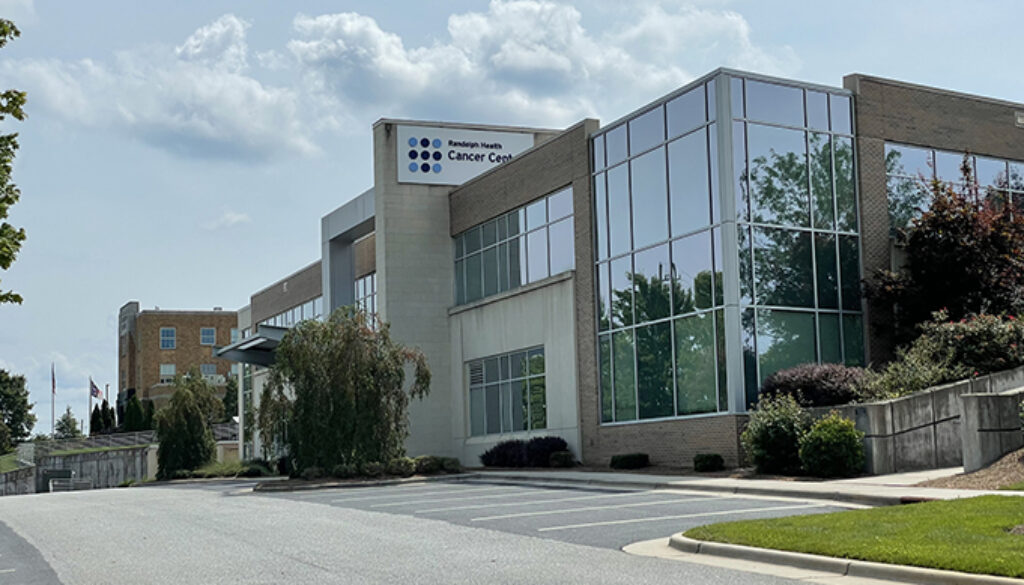Ford counts on rural health connections
Hospital’s new CEO looks to foster new feelings related to medical facility
ASHEBORO – Tim Ford says understanding the importance of a medical facility in a mostly rural setting might be his most vital asset as he oversees operations at Randolph Hospital.
He hopes to foster a new era at the once-bankrupt hospital.
“There’s kind of a different feeling that the hospital is out of bankruptcy and the uncertainty (that came with it),” Ford said. “That we’re moving forward.”
Upon the sale to American Healthcare Systems, Ford became CEO of Randolph Health on July 1, though he had been on site for a few months during the transition. Angela Orth left the position April 15 after almost three years (including eight years total with the hospital).
It figures to be a challenging road ahead for the hospital, but Ford’s background might provide the right perspective.
“I appreciate the value of having a small, rural hospital,’ Ford said.
Ford spent 24 years involved in the Appalachian Regional Healthcare System in Boone and Blowing Rock. His time in this part of the state includes graduate studies at UNC Chapel Hill along with a residency at what’s now Wake Forest Baptist Medical Center in Winston-Salem.
Ford said he envisions Randolph Health working in conjunction with larger health systems in the region, forming crucial partnerships in some areas.
When Randolph Hospital was left in limbo and the possibility of new ownership with Cone Health didn’t pan out, it put doubt in many people’s minds.
“Will it be around in its current form?” Ford said of likely concerns.
Randolph County commissioners have shared their desire for the community to have a thriving facility that can fill specific needs and build confidence in the quality of medical care that residents will receive locally.
Already, there’s a new in-hospital medical group set-up that Ford said will be important to how the hospital is perceived.
“Many of them had worked here before and have been in the community,” he said.
Ford said the goals include an increase in specialty service. He said gastroenterology is one example of that already in the works. He said upgrades in neurology could be next.
It will be important, he said, to continue to examine the state of equipment at the facility. He said the equipment in use still works, but “some of it has some age on it.”
Recruiting for staff will be vital. He said he wants to provide intriguing opportunities for the nursing staff. He said it will be important to be an enticing work setting for new graduates.
“We want people to see that our plan is to grow,” he said.
Meanwhile, Randolph Hospital has to stay within its bounds.
“We certainly don’t want to get into services that we can’t offer in quality,” Ford said.
Ford’s hospital administration also includes five years as president and CEO of Springfield Medical Care System in Vermont. He described that as a tough situation at the beginning followed by a couple of good years before widespread reports of rising financial concerns for that nonprofit health care system. “Then the board decided to go in another direction,” he said.
For Ford, it didn’t deter his desire to make an impact in similar rural settings.
“I like challenging opportunities,” he said. “I felt challenged (in Boone) and kind of the same thing here. You want to use those skills being in small, rural hospitals.”
His father had roots in Appalachia, though Ford grew up near Tucson, Ariz. He said he has found North Carolina to be a good base, still maintaining a home in Blowing Rock. His professional background also includes work with North Carolina’s Certificate of Need agency, which makes rulings regarding health regulations.
While in his role in Boone, Ford also taught for 21 years at Appalachian State. He offered instruction in health law as part of the health care management program and also was involved in exercise science programs.
For now, it’s time to help put Randolph Hospital on the right track. He said that endeavor launched in March when he first became involved.
“I’ve started to get to know the staff and the process,” he said. “These folks here have persevered through some challenging times.”
 Twitter
Twitter Facebook
Facebook Instagram
Instagram


